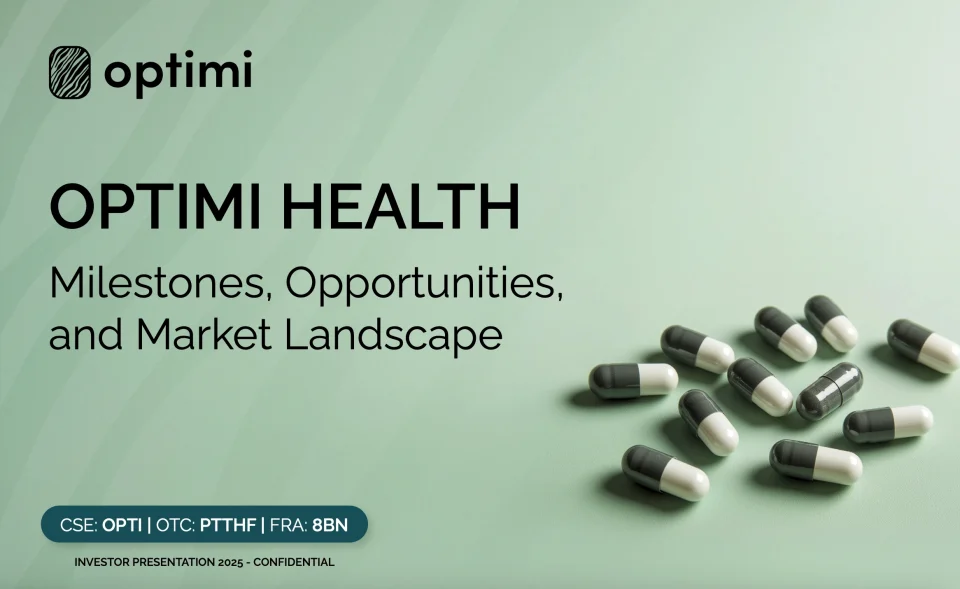Optimi Health Corp. (CSE: OPTI, OTCQX: OPTHF, FRA: 8BN), a Canadian manufacturer of pharmaceutical-grade MDMA and natural psilocybin, recently announced two key financial arrangements that reveal how it is managing growth and funding as it navigates the evolving psychedelic medicine market.
First up is a non-brokered private placement involving the sale of 3,450 unsecured convertible debentures. These will raise approximately $2,511,100 (CAD$3,450,000) at a price of $728.50 (CAD$1,000) each. The debentures offer a 15 percent annual interest rate, with payments made quarterly in cash. They mature in twelve months from issuance, but investors have the option to extend this to twenty-four months if they wish.
Investors can convert the principal amount of the debentures into common shares at $0.15 per share, a price that matched Optimi’s closing share price on the Canadian Securities Exchange just before the agreements were signed. Any accrued interest not paid in cash can also be converted to shares at the most recent trading price prior to the conversion request. The funds from this offering are slated for general working capital needs. In line with Canadian securities regulations, all issued securities and those that may come from converting the debentures are subject to a hold period lasting four months plus one day.
Notably, the investors involved in this placement are insiders: Optimi’s CEO and CMO Dane Stevens, and board Chair JJ Wilson. Their participation is through their respective companies, Cathay Visions Enterprises Ltd. and Catcher Investments Ltd. Following the placement, Stevens holds 12.29 percent of Optimi’s shares while Wilson holds 8.52 percent. Although this related-party transaction might raise questions around conflicts of interest, Optimi is relying on exemptions from valuation and minority shareholder approval because their combined investment does not exceed 25 percent of the company’s market capitalization, keeping it compliant under applicable Canadian rules.
In another move, Optimi extended a secured term loan of $728,500 (CAD$1,000,000) with an unrelated lender. The loan carries an interest rate of 7.5 percent per year with quarterly interest payments. The maturity date has been extended to April 30, 2026. While Optimi can repay the loan early, it may have to pay a prepayment fee. As part of the extension deal, Optimi granted the lender 400,000 common share purchase warrants. These warrants can be exercised two years from issuance at $0.25 per share. While warrants add some potential dilution, they are a common tool to secure favorable debt terms, especially in pharmaceutical and biotech fields where cash flow often must be carefully managed.
Taken together, these funding moves provide interesting insights. The fact that senior leadership is willing to commit capital by converting debt into equity suggests a strong degree of confidence in Optimi’s prospects. At the same time, the 15 percent interest on the convertible debentures signals the ongoing risk involved in a sector still working through regulatory approvals, clinical trials, and building viable commercial pathways.
Optimi operates with a Health Canada manufacturing license for MDMA and natural psilocybin to support research and therapeutic development. How well the company leverages this fresh capital into advancing its product pipeline and market presence is something to watch closely, especially as competition and regulatory landscapes evolve.
Ultimately, Optimi Health’s recent financing activities reflect a broader dynamic within the psychedelics industry, where companies are balancing growth ambitions with the realities of early-stage risk and capital needs. The confidence shown by internal backers combined with commitments from external lenders underscores that there remains belief in the sector’s longer-term potential, even if the road ahead may be complex.

